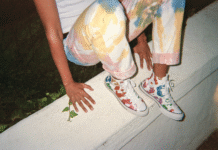
Evidence that supports allowing more gay, bisexual and other men who have sex with men to donate blood has been released by a University in New Zealand.
Three times the current number of gay and bisexual men could donate blood if New Zealand’s rules were updated to align with those in Canada and the UK, according to new research from the University of Auckland.
Currently, in New Zealand, men who have had anal or oral sex with another man in the past three months are excluded (“deferred”) from donating blood, because of the risk of passing on undiagnosed HIV. Australia has the same rules but is also looking at change.
The Kiwi survey of 3,253 gay, bisexual and other men who have sex with men found, under the current rules, only 13% would be allowed to donate blood, whereas if the blood policies in the UK and Canada were applied, that rate would rise to 41%.
“It’s now time to improve New Zealand’s blood donor rules,” said Associate Professor Peter Saxton, lead investigator at the School of Population Health at the University of Auckland.
“This would allow more gay and bisexual men to participate in an important civic act, and it would benefit all New Zealanders who need blood, without compromising safety,” Saxton said.

The same research found most (82%) of survey respondents were interested in donating blood, and 43% had donated blood in the past.
Of those who had donated, most were older participants who had done so a long time ago or were younger participants who’d donated blood recently, for example before they were sexually active.
When asked about the current policy, approximately three-quarters of participants felt the current New Zealand policy was unfair and discriminatory.
Most (79%) believed that donating blood would allow them to contribute to society. Few (11%) felt that their own blood would pose a risk to others.
“Even though participants felt the current policy was wrong and outdated, a reassuring finding was that compliance was almost universal,” said Dr Saxton.
Saxton explained the blood screening processes may not pick up very recently acquired HIV – within eight days.
However, people in monogamous relationships or who have not had anal sex with new or multiple partners in the previous three months would not pose a risk to the blood supply.
Recently, policies in Canada and the UK for donating blood have changed to reflect new developments in screening.
The findings of the new research have been written up in a community report that will be launched at a Pride Festival event on Thursday 8 February.
The Sex and Prevention of Transmission Study (SPOTS) is led by the University of Auckland in partnership with the University of Otago and community organisations Burnett Foundation Aotearoa, Body Positive Inc, Te Whāriki Takapou and the NZ Blood Service.
NZ Blood Service Chief Medical Officer Dr Sarah Morley said the Blood Service is committed to change and working towards introducing an individualised risk assessment when screening potential blood and plasma donors – one that is more inclusive and will enable men in single-partner relationships with other men to donate.
“The results from SPOTS represents a significant step on the pathway to change,” Dr Morley said.
“It provides NZBS with valuable insights into the safe sex practices of men who have sex with other men in Aotearoa, providing important supportive evidence that moving to a more individualised risk assessment in New Zealand will not compromise the safety and quality of the blood we supply to patients.
“We’re excited to start the journey of change and about the prospect of being able to welcome more gay, bisexual, takatāpui and other men who have sex with men into our whānau of lifesavers in the future. This process is going to take time, but we’re committed to making change.”
Another aspect of the research was collecting dried blood samples to estimate how much undiagnosed HIV there is in the community. While that study is still to be published, Saxton said the interim findings indicate there’s a negligible amount.
“Overall, our findings show that gay and bisexual men value the right and responsibility to donate blood and are an untapped population. Many are willing to cooperate and help, if invited to,” said Dr Saxton.
The only catch is that, while 81% of gay and bisexual men said they intended to donate blood if they became eligible in future:
“In the open-ended responses, some participants weren’t sure if they could trust the blood service to welcome them, given what participants perceived as a long history of unjustified exclusion.
“It suggests the NZ Blood Service needs to rebuild relationships with the gay community if they want to get the most out of a future policy change,” said Dr Saxton.

Asked about future policy options, most participants (86%) were willing to be asked more detailed personal questions about HIV risk behaviours, if it meant they could donate blood sooner.
The study authors recommended that the NZ Blood Service move swiftly to improve New Zealand’s policy, using the recent UK and Canadian policy changes in 2021 and 2022 respectively as potential models.
Last Updated on Feb 8, 2024
The news team for Gay Nation love tips from our readers. Got tips or a news story that you would like published? Go here to tell us something.
Visit the Gay Nation store Now




























